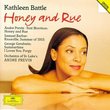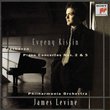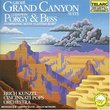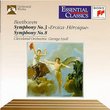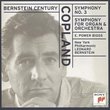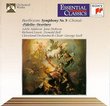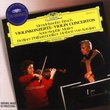| All Artists: Hugo Alfven, Niklas Willen, Royal Scottish National Orchestra Title: Alfvén: Orchestral Works, Vol.1 Members Wishing: 0 Total Copies: 0 Label: Naxos Release Date: 3/23/1999 Genre: Classical Styles: Ballets & Dances, Ballets, Historical Periods, Modern, 20th, & 21st Century, Symphonies Number of Discs: 1 SwapaCD Credits: 1 UPC: 730099496223 |
Search - Hugo Alfven, Niklas Willen, Royal Scottish National Orchestra :: Alfvén: Orchestral Works, Vol.1
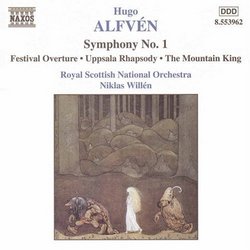 | Hugo Alfven, Niklas Willen, Royal Scottish National Orchestra Alfvén: Orchestral Works, Vol.1 Genre: Classical
|
Larger Image |
CD DetailsSimilarly Requested CDs |
CD ReviewsCompelling performances of a great Swedish composer. David A. Hollingsworth | Washington, DC USA | 05/06/1999 (5 out of 5 stars) "Hugo Alfven (1872-1960) is now regarded as a leading Swedish composer, along with Wilhelm Stenhammar. In the past 30 years, prominent conductors such as Neemi Jarvi, Stig Westerberg, Evgeny Svetlanov, Lief Segerstam, & Sakari, advocated their works, especially through recordings. It was Stig Westerberg who was the first to bring works of these important Scandanavian composers from obscurity through the LP recordings. On the debit side, however, many of there chamber & chorus works (including songs) have not made it to the record shelves.The festival overture is an appealing, nationistic 3/4 metre of a work, almost like a waltz, but with a more specific purpose. It's not a pompous work, but a work with sheer optimism & grandeur, with a fanfare opening suggesting nothing but festivity. It was composed in 1908 for the occasion of the opening of the Royal Dramatic Theatre in Stockholm.The ballet-pantomine "Bergakungen" (The Mountain King (1917-1922)) was based on the legendary story of shepardess who was abducted by a mountain king. With the help of a troll, the lover of the shepardess rescued her from the mountain king. The troll however realized that that he will never win the love of the shepardess, & therefore allowed them to die in a snow storm. This story is as tragic as the Czech fairy tale "The Noon Witch" for which Antonin Dvorak based his symphonic poem upon. The Suite, extractions from the ballet, is in four movements, with memorable themes throughout. The work is imaginative, mystic, & ultimately & immediately compelling. The beginning has a Sibelius' Finlandia touch & has the beauty of a Claude Debussy. The orchestration is personal & individualistic, & those qualities never left the composer for the rest of his prolific & successful career.The Second of the three Uppsala Rhapsodies (Swedish Rhapsody no. II) was composed by 1907 for the 200th aniversary celebration of the Uppsala University. It's a parallelism to Brahms' Academic overture of 1881, with school song themes embetted throughout. It's an attractive, if not, a plain work that is appreciative. The main item of this compact disc is the First Symphony in F minor of 1897 in four movements. The first is has a grim, slow, beginning. It gathers pace, but with no optimism, but with seriousness, ending on a tragic note. The Andante is meditative & laid back, with the idiom sounding somwhat modernistic. The Scherzando third movement is joyful, youthful, & somewhat pastorale, reminding one of Edvard Grieg. The finale has a Beethovenian like opening. Its' pace quickens with both festivity & youthful optimism. The middle section is memorable & charming before the movement picks up where it left off. Although somewhat discursive & episodic, the movement has it appeals nevertheless & neatly fits into the entire scheme of the symphony.The performances of these works are no more or no less authoritative & compelling than those of Stig Westerberg, Jarvi, or Svetlanov. Although Niklas Willen & the Royal Scottish National Orchestra were slower in pace in Alfven's First symphony, most especially in the first movement, they performed the work, with other works on the disc, with passion, conviction, and with perfect discipline. Should you decide to go for the symphony, you can opt for any recordings currently available, including this one under Naxos (and under a budget-price). You will not be disapointed, I promise.Recommended with a big heart." Hugo Alfvén: Symphony No. 1 Eric S. Carboneau | Florida | 08/06/2006 (4 out of 5 stars) "This is wonderful, outstanding music! I would make this recording required listening for anybody familiar with Alfvén's splendid "Midsommarvaka" (Swedish Rhapsody No. 1)."
|

 Track Listings (10) - Disc #1
Track Listings (10) - Disc #1